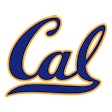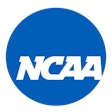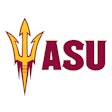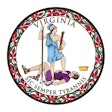 Ralphie's Green Stampede Logo
Ralphie's Green Stampede LogoThe University of Colorado is in its third season striving for zero waste at home football games, but Dave Newport knows he may never see that goal met.
"It's important to understand the whole zero-waste concept is really like a zero-accidents policy on a job site. It's a continuous-improvement model," says Newport, who as director of CU's Environmental Center helps coordinate sustainability efforts at Folsom Field and elsewhere on the Boulder campus. "It really needs to be seen as aspirational and not literal. You're simply not going to get rid of all the stuff at the end of the day. But you just keep trying to get better."
According to Newport, Colorado diverted from landfills roughly 82 percent of the waste generated at Buffaloes games last season, up only a couple of percentage points from the year before. "It's incremental at this point," he says.
When asked what gets in the way of greater improvement at Colorado, already one of the greenest operations in the country, Newport lists plastic straws, the plastic bags used to package ice, and miles of plastic wrap used to hold together pallets loaded with game-day supplies. "Our biggest contaminant is wholesale film plastic," Newport says. "We can't control it."
Then there are the smaller hard-to-control items, such as carried-in plastic peanut bags and candy wrappers. Last season, Folsom Field concessions stands stopped selling snack chips in plastic bags as CU waits for Frito-Lay to introduce to the commercial market compostable packaging - a measure that received mocking mention (to Newport's way of thinking) in The Wall Street Journal earlier this year. "Fans bring in stuff. Visiting teams bring in stuff," Newport says. "There are sneakers that show up in my waste stream, because somebody blew out a sneaker while at the game."
Helping educate fans on how to presort and dispose of their personal detritus is a legion of student volunteers, called Goalies, who patrol the dozen or so zero-waste stations - each with separate containers for recyclable and compostable material - set up around the 53,750-seat stadium on football Saturdays. "That's a different paradigm from trashcans," Newport says. "People want trashcans everywhere. If I had to defend trashcans everywhere, I'd have to have a cast of thousands." CU, which places no trashcans at Folsom Field, got by with as few as 14 Goalies at one game last season, but Newport would prefer to have three times that for a typical home Saturday. (For their waste-trafficking trouble, Goalies get a T-shirt, meal and free admission to the stadium.)
But some fans don't use containers at all. "There are two kinds of fans," Newport says. "There are the fans who get their food and then sort of process it, put their condiments on there, get their napkins, get it all sort of ready to eat and jettison any extraneous wrapping that came with it, like whatever is around the hot dog, before they walk back into the stadium. And then there are those who buy their stuff and then just walk back into the stadium. Whatever fans don't jettison doesn't come back out of there. It gets left on the stadium floor."
At the crack of dawn the following day, a hundred ROTC cadets comb through the garbage that never made it into containers. During the so-called "bowl pick," each cadet carries two bags - one for recycling, one for composting. Just as in waste-station sorting, any non-recyclable material is lumped in with the recyclables to be sorted later.
Coors Events/Conference Center, the Buffs' basketball venue, is now under a zero-waste plan, too, and Newport shares CU's best practices with counterparts at Invesco Field, Coors Field, the Pepsi Center and other sports and entertainment venues in the Greater Denver area as part of the Rocky Mountain Greener Venues Partnership for Sustainable Communities - guided by a regional office of the U.S. Environmental Protection Agency.
However, he feels retail giant Walmart might serve as the best model for sustainable venue operations, particularly in the area of non-recyclable packaging waste reduction. Says Newport, "Walmart's going to have a lot to do with leading the charge on this, because they spec all of these packaging preferences for their suppliers, for a number of reasons - sustainability being one of them; the other one being the less packaging, the more product they can get in the truck, which means they make more money. It's smart."
Granted, the world's largest corporation has the kind of pull that Folsom Field and the RMGVP can only dream of, but Newport argues there are small-scale changes that can take place, such as replacing bagged ice with ice delivered in reusable plastic containers - like the kind Amazon uses to deliver food to his daughter in Seattle. "Instead of converting petroleum into disposable plastic, they're converting petroleum into durable plastic," he says.
"There are ways to do it," Newport adds, of inching ever closer to zero waste. "We'll just get clever about it."

































